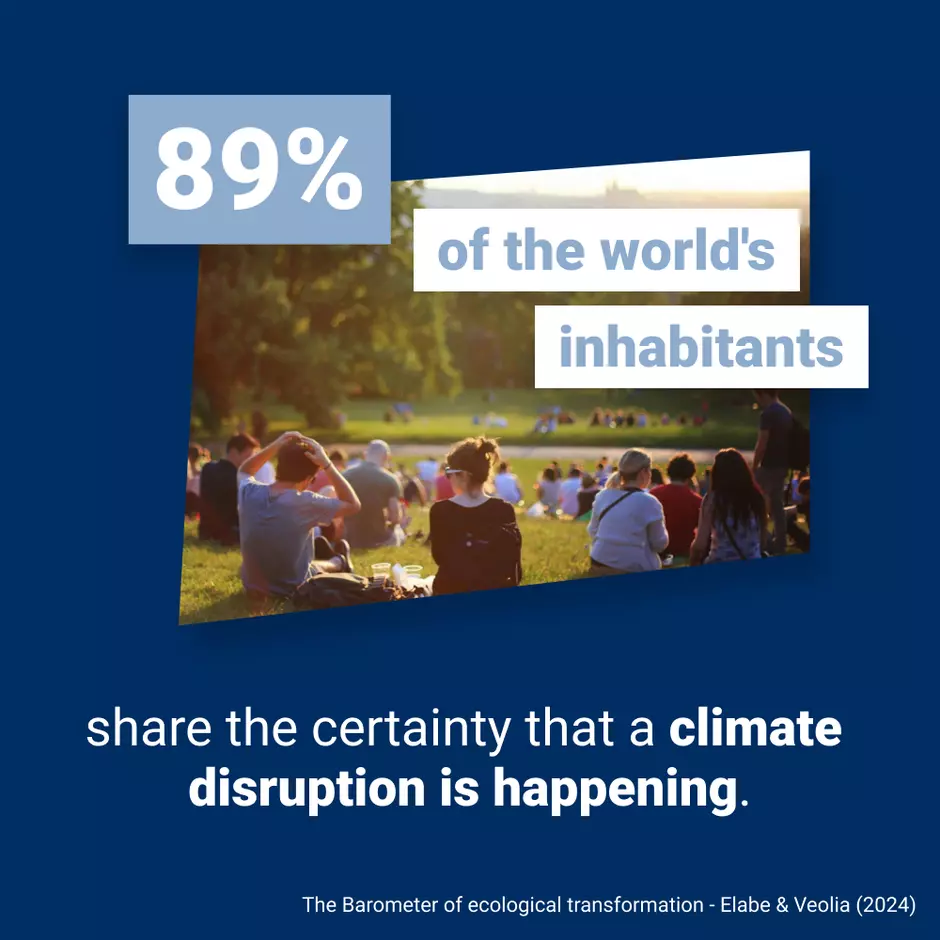Since 2022, Veolia has been publishing the Barometer of Ecological Transformation every two years, in partnership with the Elabe consulting and research firm.
Facing the climate and ecological wall, public debate has entered a new phase. Aware of environmental risks to their health and quality of life, populations around the world are demanding action. Existing solutions are widely accepted, but strategies to implement them struggle to structure on common grounds.
Discover the 2024 edition:
A Global study
Hungarian study

A barometer that affects 26 countries in the 5 continents
The Barometer takes in 26 countries on 5 continents covering a sample of more than half the human population. The countries were chosen for their demographic weight and their relevance: countries on the front line of the effects of climate change, but also countries that are pioneers in ecological policies.
The scope of this Barometer allows us to assess the global and local level of acceptability of existing ecological solutions and to discover the barriers and drivers that accompany the implementation of these solutions. An informative study that helps us to advance the debate and better understand how to achieve ecological transformation.
The first findings of the barometer
From the hungarian population:
feel exposed and vulnerable to a risk related to climate change or pollution.
find it difficult to imagine what daily life could be like after ecological transformation.
the costs of the consequences of climate disruption are going to be greater than the investments needed for ecological transformation.
are certain that climate change is the greatest health threat facing humanity.
are certain that climate change is an acute threat to the poorest people across the world, with the potential to push more than 130 million people into poverty by 2030.


